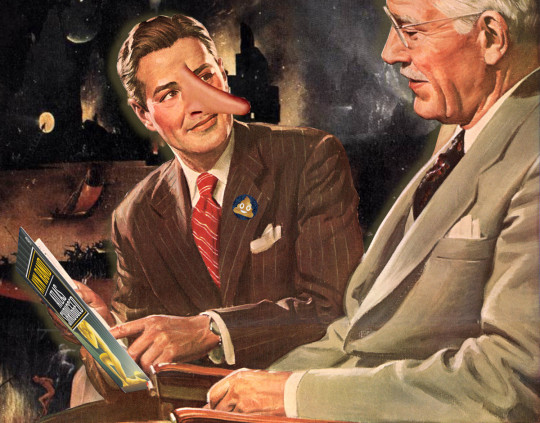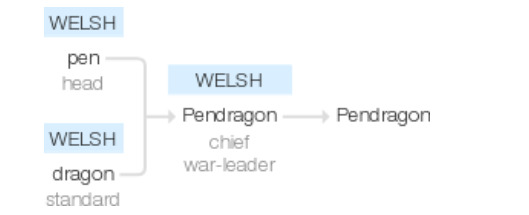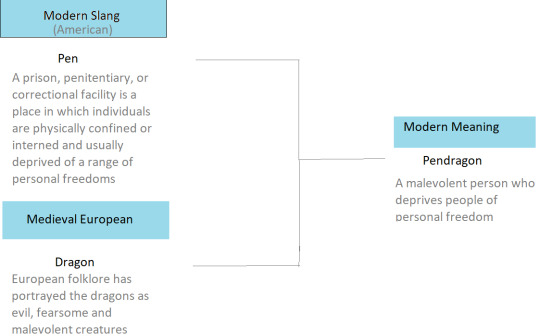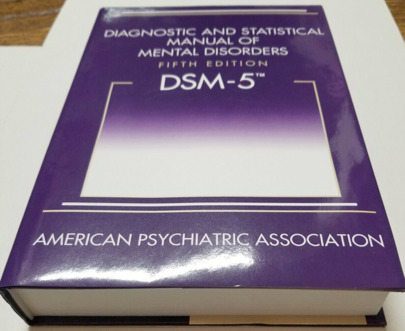#american counseling association
Text
“Life is a purposeful action.”
~ Dr. Asa Don Brown
#Living #Life #Action #Behavior #Action #Thoughts #Perspectives #Mindset #Thinking #Ideas #Ideologies #Purpose #Purposeful #Passion #LifebyDesign #AsaDonBrown
https://www.instagram.com/reel/CzwKVasuKG-/?igsh=MXh6MXZ6N2ZvazRqNA==
#life#purpose#purposeful#purposefulliving#life by design#action#dr. asa don brown#asa don brown#psychology#counselling#canadian counselling and psychotherapy association#mental health#forgiveness#love#children#canada#psychological#American counseling association
0 notes
Text
since we now know that all those "my blog is safe for Jewish people" posts are bullshit, here are some Jewish organizations you can donate to if you actually want to prove you support Jews. put up or shut up
FIGHTING HUNGER
Masbia - Kosher soup kitchens in New York
MAZON - Practices and promotes a multifaceted approach to hunger relief, recognizing the importance of responding to hungry peoples' immediate need for nutrition and sustenance while also working to advance long-term solutions
Tomchei Shabbos - Provides food and other supplies so that poor Jews can celebrate the Sabbath and the Jewish holidays
FINANCIAL AID
Ahavas Yisrael - Providing aid for low-income Jews in Baltimore
Hebrew Free Loan Society - Provides interest-free loans to low-income Jews in New York and more
GLOBAL AID
American Jewish Joint Distribution Committee - Offers aid to Jewish populations in Central and Eastern Europe as well as in the Middle East through a network of social and community assistance programs. In addition, the JDC contributes millions of dollars in disaster relief and development assistance to non-Jewish communities
American Jewish World Service - Fighting poverty and advancing human rights around the world
Hebrew Immigrant Aid Society - Providing aid to immigrants and refugees around the world
Jewish World Watch - Dedicated to fighting genocides around the world
MEDICAL AID
Sharsheret - Support for cancer patients, especially breast cancer
SOCIAL SERVICES
The Aleph Institute - Provides support and supplies for Jews in prison and their families, and helps Jewish convicts reintegrate into society
Bet Tzedek - Free legal services in LA
Bikur Cholim - Providing support including kosher food for Jews who have been hospitalized in the US, Australia, Canada, Brazil, and Israel
Blue Card Fund - Critical aid for holocaust survivors
Chai Lifeline - An org that's very close to my heart. They help families with members with disabilities in Baltimore
Chana - Support network for Jews in Baltimore facing domestic violence, sexual abuse, and elder abuse
Community Alliance for Jewish-Affiliated Cemetaries - Care of abandoned and at-risk Jewish cemetaries
Crown Heights Central Jewish Community Council - Provides services to community residents including assistance to the elderly, housing, employment and job training, youth services, and a food bank
Hands On Tzedakah - Supports essential safety-net programs addressing hunger, poverty, health care and disaster relief, as well as scholarship support to students in need
Hebrew Free Burial Association
Jewish Board of Family and Children's Services - Programs include early childhood and learning, children and adolescent services, mental health outpatient clinics for teenagers, people living with developmental disabilities, adults living with mental illness, domestic violence and preventive services, housing, Jewish community services, counseling, volunteering, and professional and leadership development
Jewish Caring Network - Providing aid for families facing serious illnesses
Jewish Family Service - Food security, housing stability, mental health counseling, aging care, employment support, refugee resettlement, chaplaincy, and disability services
Jewish Relief Agency - Serving low-income families in Philadelphia
Jewish Social Services Agency - Supporting people’s mental health, helping people with disabilities find meaningful jobs, caring for older adults so they can safely age at home, and offering dignity and comfort to hospice patients
Jewish Women's Foundation Metropolitan Chicago - Aiding Jewish women in Chicago
Metropolitan Council on Jewish Poverty - Crisis intervention and family violence services, housing development funds, food programs, career services, and home services
Misaskim - Jewish death and burial services
Our Place - Mentoring troubled Jewish adolescents and to bring awareness of substance abuse to teens and children
Tiferes Golda - Special education for Jewish girls in Baltimore
Yachad - Support for Jews with disabilities
#atlas entry#please add any more you know of an especially add fundraisers for you or people you know#if there are any fundraisers for synagogues please add those as well#jew#jewish#judaism#jumblr#punch nazis
2K notes
·
View notes
Text
How to Practice Law in a Different State
How to Practice Law in a Different State
There are plenty of benefits to being a multi-state lawyer. Besides the most obvious advantage which is expanding your client base, it can also be practical when you live near a border between two different states. So, if you find yourself asking how to practice law in multiple states, you’re certainly not the first.
In this article, we’ll detail how to become a multijurisdictional lawyer as…

View On WordPress
#American Bar Association#attorneys#bar exam#business#federal law#in-house counsel#law firms#law office management#law offices#lawyers#legal#legal licensing#practicing law#state law
0 notes
Text
Antis who proudly proclaim they're going to become a therapist so they can shut down and manipulate and unethically target all the 'nasty proshippers' make me laugh because they're going to get two months into any sort of qualifying course and be slapped in the face by the reality that therapists are obligated to remain objective and impartial and will lose their license if they're found to be using their position to be unfairly bias or negatively target clients based on their own personal beliefs and values.
"Objectivity helps counsellors avoid personal biases and allows them to focus on the client's needs without imposing their own beliefs or values."
- American Counselling Association
"Therapy should feel like an inclusive and safe place for clients. Clients need to feel safe and supported in their work. And while all therapists have inherent biases and personal preferences, it is never appropriate for them to engage in discrimination, racism, sexism, or other forms of prejudice with clients."
- Medcircle
You do not get into therapy to correct people. You get into therapy to help them. Therapy is not about the therapist.
#myfandomrealitea#sephiroth speaks#reality#proship#proshipping#therapy#profiction#mental health#emotional health#guidance
968 notes
·
View notes
Text
A taxonomy of corporate bullshit

Next Tuesday (Oct 31) at 10hPT, the Internet Archive is livestreaming my presentation on my recent book, The Internet Con.

There are six lies that corporations have told since time immemorial, and Nick Hanauer, Joan Walsh and Donald Cohen's new book Corporate Bullsht: Exposing the Lies and Half-Truths That Protect Profit, Power, and Wealth in America* provides an essential taxonomy of this dirty six:
https://thenewpress.com/books/corporate-bullsht
In his review for The American Prospect, David Dayen summarizes how these six lies "offer a civic-minded, reasonable-sounding justification for positions that in fact are motivated entirely by self-interest":
https://prospect.org/culture/books/2023-10-27-lies-my-corporation-told-me-hanauer-walsh-cohen-review/
I. Pure denial
As far back as the slave trade, corporate apologists and mouthpieces have led by asserting that true things are false, and vice-versa. In 1837, John Calhoun asserted that "Never before has the black race of Central Africa, from the dawn of history to the present day, attained a condition so civilized and so improved, not only physically, but morally and intellectually." George Fitzhugh called enslaved Africans in America "the freest people in the world."
This tactic never went away. Children sent to work in factories are "perfectly happy." Polluted water is "purer than the water that came from the river before we used it." Poor families "don't really exist." Pesticides don't lead to "illness or death." Climate change is "beneficial." Lead "helps guard your health."
II. Markets can solve problems, governments can't
Alan Greenspan made a career out of blithely asserting that markets self-correct. It was only after the world economy imploded in 2008 that he admitted that his doctrine had a "flaw":
https://www.pbs.org/newshour/show/greenspan-admits-flaw-to-congress-predicts-more-economic-problems
No matter how serious a problem is, the market will fix it. In 1973, the US Chamber of Commerce railed against safety regulations, because "safety is good business," and could be left to the market. If unsafe products persist in the market, it's because consumers choose to trade safety off "for a lower price tag" (Chamber spox Laurence Kraus). Racism can't be corrected with anti-discrimination laws. It's only when "the market" realizes that racism is bad for business that it will finally be abolished.
III. Consumers and workers are to blame
In 1946, the National Coal Association blamed rampant deaths and maimings in the country's coal-mines on "carelessness on the part of men." In 2003, the National Restaurant Association sang the same tune, condemning nutritional labels because "there are not good or bad foods. There are good and bad diets." Reagan's interior secretary Donald Hodel counseled personal responsibility to address a thinning ozone layer: "people who don’t stand out in the sun—it doesn’t affect them."
IV. Government cures are always worse than the disease
Lee Iacocca called 1970's Clean Air Act "a threat to the entire American economy and to every person in America." Every labor and consumer protection before and since has been damned as a plague on American jobs and prosperity. The incentive to work can't survive Social Security, welfare or unemployment insurance. Minimum wages kill jobs, etc etc.
V. Helping people only hurts them
Medicare will "destroy private initiative for our aged to protect themselves with insurance" (Republican Senator Milward Simpson, 1965). Covid relief is unfair to people that are currently in the workforce" (Republican Governor Brian Kemp, 2021). Welfare produces "learned helplessness."
VI. Everyone who disagrees with me is a socialist
Grover Cleveland's 2% on top incomes is "communistic warfare against rights of property" (NY Tribune, 1895). "Socialized medicine" will leave "our children and our children’s children [asking] what it once was like in America when men were free" (Reagan, 1961).
Everything is "socialism": anti-child labor laws, Social Security, minimum wages, family and medical leave. Even fascism is socialism! In 1938, the National Association of Manufacturers called labor rights "communism, bolshevism, fascism, and Nazism."
As Dayen says, it's refreshing to see how the right hasn't had an original idea in 150 years, and simply relies on repeating the same nonsense with minor updates. Right wing ideological innovation consists of finding new ways to say, "actually, your boss is right."
The left's great curse is object permanence: the ability to remember things, like the fact that it used to be possible for a worker to support a family of five on a single income, or that the economy once experienced decades of growth with a 90%+ top rate of income tax (other things the left manages to remember: the "intelligence community" are sociopathic monsters, not Trump-slaying heroes).
When the business lobby rails against long-overdue antitrust action against Amazon and Google, object permanence puts it all in perspective. The talking points about this being job-destroying socialism are the same warmed-over nonsense used to defend rail-barons and Rockefeller. "If you don't like it, shop elsewhere," has been the corporate apologist's line since slavery times.
As Dayen says, Corporate Bullshit is a "reference book for conservative debating points, in an attempt to rob them of their rhetorical power." It will be out on Halloween:
https://bookshop.org/a/54985/9781620977514

If you'd like an essay-formatted version of this post to read or share, here's a link to it on pluralistic.net, my surveillance-free, ad-free, tracker-free blog:
https://pluralistic.net/2023/10/27/six-sells/#youre-holding-it-wrong
#pluralistic#corporate bullshit#lies#books#reviews#taxonomies#labor#denialism#consumerism#Nick Hanauer#Joan Walsh#Donald Cohen#history#object permanence#taking the right seriously
834 notes
·
View notes
Text
Merlin BBC UK TV Show - A Psychological Analysis Series Part 13
The Meaning Of Pendragon In The TV Show
The 3 prominent characters in the TV show who bear the Pendragon last name are Uther, Arthur and Morgana.

The name has its origin in the Old Welsh language

The Arthurian legends were mainly written in the medieval age.
However Arthur's literary origins lie in the Dark ages.
The TV creators have already stated it was their intention to reinterpret Arthurian legends using a modern Smallville format which is modern American in its narrative.
Source:
Even though the TV show does not specify the time period it is set in, it uses a lot of medieval imagery such as plated armor, chain mail, carriages etc.. which were all medieval inventions.
So this dark age last name used within a medieval world but portrayed through a modern 21st century American narrative takes a whole new meaning.

The show also gives us a literal meaning to Pendragon as Uther even sent a dragon to the pen ( Kilgaragh is imprisoned underneath the cavern of Camelot )
Here the name takes the overtures of being a TYRANT.
______________________________________________________________
Uther:

He fits the classic definition of a tyrant.
I don't even have to list all of Uther's crimes because Merlin as Dragoon literally calls him a tyrant to his face listing all his misdeeds in the following clip:
youtube
It is Uther who lends his last name to Morgana and Arthur and all the baggage that comes with it.
______________________________________________________________
Morgana:

It is very telling that the moment Morgana realizes that Uther is her father, she rejects Uther as she does not want to associate with what Uther Pendragon represents.
However the Pendragon traits soon manifests within her as she undergoes the tragic transformation from being a brave and loyal friend who helped a lowly servant by going to his village and helping him defend it to being this embittered villainess who shows dictatorial traits.
Her struggle for self acceptance as a magical being and protesting against the persecution of magic users soon manifests as a crusade against the non magical users based on revenge.
The Pendragon legacy here acts as a genetic pathological mental illness that is triggered through grief and betrayal. Morgana being poisoned by Merlin being the trigger for Morgana as Ygraine's death was for Uther.

______________________________________________________________
Arthur:

Uther is the typical distant and repressive fatherly figure who has channeled all his hopes and emotions on his sole male heir i.e. Arthur.
Arthur had a strict military training who is only allowed to show his masculine, aggressive side

Unlike Morgana, Arthur constantly feels the pressure to live up to Pendragon name. The Sword in the Stone: Part 1 and 2 episodes perfectly highlights Arthur's insecurities.
Merlin who is privy to Arthur's psyche more than anyone in the series, has seen the Pendragon rage manifest in Arthur such as:
Arthur willing to kill Uther (Refer Episode: The Sins of the Father)
Arthur banishing Gwen under the punishment of death (Refer Episode: Lancelot Du Lac)
Arthur vowing vengeance against Agravaine (Refer Episode: The Sword in the Stone Part 1)
Arthur vows to punish Dragoon after Uther dies (Refer Episode: The Wicked Day)
In all the above situations, it is Merlin who provides counsel and/or emotional support to Arthur to exercise prudence and not give in to his rage.
IT IS ONE OF THE KEY REASON WHY MERLIN DOES NOT REVEAL HIS MAGIC TO ARTHUR UNTILL THE VERY END !!!
youtube
The dialogue in the scene above is very revealing.
ARTHUR: Why did you never tell me?
MERLIN: I wanted to but...
ARTHUR: What?
MERLIN: You would have chopped my head off.
ARTHUR: I am not sure what I would have done
MERLIN: I did not want to put you in that position
ARTHUR: That's what worried you
Merlin knows the trigger for Pendragon rage is betrayal and grief.
Merlin knows it was his betrayal of Morgana that lead her down a dark path.

Had Merlin revealed his magic to Arthur earlier he would never have earned Arthur's trust to be in a position to counsel him during his darkest moments.
Merlin being the other half of Arthur as stated by Kilgaragh acts a superego for Arthur trying to counterbalance his aggressive Pendragon tendencies .
Kilgaragh had told Merlin it was his mission to mold Arthur into being a great king. (Refer Episode: Dragons' Call)
Merlin's influence on Arthur is really exemplified in the episode "Death Song Of Uther Pendragon" , where Arthur confronts Uther:
youtube
Merlin then confronts Uther's ghost, reiterating that Arthur is indeed very unlike Uther.

This episode ends with Arthur rejecting Uther and what Uther stands for, by blowing the Horn of Cathbhadh and sending Uther back to the spirit realm.

______________________________________________________________
In Conclusion:
It was a masterful stroke by the series creators to have Morgana and Arthur introduced to the audience in contrasting light. (Refer Episode: Dragons' Call)
Morgana is shown distressed as a man is executed by Uther for being a sorcerer whereas Arthur is seen bullying one of his squires.
The audience is only privy to the information that Arthur is Uther's son and Morgana is unrelated to Uther resulting in the viewer sympathizing with Morgana and rooting against Arthur.
However as the series progresses and as Morgana's identity is revealed. We see her succumb to the Pendragon traits despite her abject hatred of Uther . Whereas Arthur ultimately rejects Uther and Uther's ideology despite constantly seeking his validation throughout the series.
Morgana ( Hero to Villan ) and Arthur's ( Villan To Hero) character arc ends up in complete opposite directions from where they began.
Both characters are scarred by trauma, loss and betrayals they have experienced compounded by the less than stellar parenting of Uther Pendragon.
It is very poignant that the series ends with Gwen on the throne and not a Pendragon signifying a new future for Camelot.
113 notes
·
View notes
Text
In November 2016, the American Association of Sexuality Educators, Counselors and Therapists (AASECT) issued a position statement on sex/porn addiction which states that AASECT "does not find sufficient empirical evidence to support the classification of sex addiction or porn addiction as a mental health disorder, and does not find the sexual addiction training and treatment methods and educational pedagogies to be adequately informed by accurate human sexuality knowledge. Therefore, it is the position of AASECT that linking problems related to sexual urges, thoughts or behaviors to a porn/sexual addiction process cannot be advanced by AASECT as a standard of practice for sexuality education delivery, counseling or therapy."
95 notes
·
View notes
Text
Basic Scientific Literacy for the DID Community
So, I mentioned I was going to do this a couple months ago. Technically this is applicable to everyone, but I will be focusing on research methods relevant to psychology as opposed to all forms of research.
Understand that science never operates in the negative or in absolutes. You are never going to find something that says "x thing doesn't happen" because science cannot prove a negative. Science also doesn't like to deal in absolutes--because it leaves room for error. Even findings about things like gravity will use "likely" or probabilities instead of saying "this is the only thing that will ever happen always." This does not mean that gravity might possibly not exist, or that anything can occur simply because science didn't explicitly say no.
When was it published? Research published 10+ years ago is considered outdated. This doesn't mean it's worthless, but it means it should be compared to current research for discrepancies.
Who is the researcher? What is their focus? Why are they researching this? A neurologist is not going to look for the same things as a counseling psychologist.
Who's funding it? Is there any reason why the funder would cause potential bias in the research?
What kind of study is it? A longitudinal study measures things over time, which is useful for tracking things like recovery. A case study is good for uncommon or extreme presentations, but cannot be said to occur for more than the person(s) involved. Metastudies are great for summarizing information and finding trends among multiple studies. A survey is easy and at times the only way how to do things, but very prone to fault because people lie, exaggerate, etc. A study that makes connections between things (for example, an adult reporting having experienced x thing during childhood) is only is associating certain things together--but does not imply cause/effect. This is a big one for DID research because researchers can't ethically put people through traumatic situations in a lab and see what causes what thing to occur. Meaning a lot of studies are associating things together but don't actually mean there's a causal relationship. There are a lot of other factors that could be influencing things.
Understand the research method. For example, were the researchers aware of which participants were receiving which thing? Were the participants aware? A study where someone is told they are going to hear a loud noise before it happens is going to have different results from one where someone is completely unaware.
How many people are being studied? What are their demographics? A study of 20 people who are all white, upper middle class college students from New York is not going to have findings that accurately represent the world. If that study says "70% of participants reported having gone skiing in the past month" it is not able to be generalized to all college students, much less the entire population. You can't say that 70% of all people have gone skiing recently. A representative sample size is going to be diverse in demographics and ideally have a high number of participants.
Understand participant bias. Who is likely to participate in research? Where did the researchers get the participants from? Were the questions given by the researchers more likely to result in exaggeration/lying (eg, noone likes to feel weird, if a question is framed as if having x experience is abnormal, less people are going to say they have experienced it)? Were the questions misleading or confusing? Example would be if someone was doing research on all immigrants, but only advertised their study at a community center specifically for Asian Americans, they're probably not going to get anyone who ISN'T Asian American and so their results will be skewed. They probably are also disproportionately going to get impoverished/lower class participants as it's a community center.
Has the study been replicated? One study showing that x happens is nice, but until other studies conducted by an entirely different research team get the same/similar result, it is not anything more than a neat paper. A bunch of studies all saying the same thing, done by many different people, is when you start seeing trends.
Understand the data. Does the data skew in a certain direction? Are there one or two really extreme results? For example, the average household income is much higher than the median household income because the average includes millionaires and billionaires. That doesn't mean the average household income is actually COMMON to have.
Understand the conclusion. If a researcher says there may be a connection between two things, they do not mean that the first thing causes the second. Do not draw more from the study than what it actually says in black and white.
#dissociative identity disorder#actuallydid#actuallydissociative#.log#I think this is everything I wanted to talk about#but if anyone thinks of anything to tack on feel free#did.log
235 notes
·
View notes
Text
""Moreover, it turns out that the United States is not all that tightfisted when it comes to social spending. “If you count all public benefits offered by the federal government, America’s welfare state (as a share of its gross domestic product) is the second biggest in the world, after France’s,” Desmond tells us. Why doesn’t this largesse accomplish more?
For one thing, it unduly assists the affluent. That statistic about the U.S. spending almost as much as France on social welfare, he explains, is accurate only “if you include things like government-subsidized retirement benefits provided by employers, student loans and 529 college savings plans, child tax credits, and homeowner subsidies: benefits disproportionately flowing to Americans well above the poverty line.” To enjoy most of these, you need to have a well-paying job, a home that you own, and probably an accountant (and, if you’re really in clover, a money manager).
“The American government gives the most help to those who need it least,” Desmond argues. “This is the true nature of our welfare state, and it has far-reaching implications, not only for our bank accounts and poverty levels, but also for our psychology and civic spirit.” Americans who benefit from social spending in the form of, say, a mortgage-interest tax deduction don’t see themselves as recipients of governmental generosity. The boon it offers them may be as hard for them to recognize and acknowledge as the persistence of poverty once was to Harrington’s suburban housewives and professional men. These Americans may be anti-government and vote that way. They may picture other people, poor people, as weak and dependent and themselves as hardworking and upstanding. Desmond allows that one reason for this is that tax breaks don’t feel the same as direct payments. Although they may amount to the same thing for household incomes and for the federal budget—“You can benefit a family by lowering its tax burden or by increasing its benefits, same difference”—they are associated with an obligation and a procedure that Americans, in particular, find onerous. Tax-cutting Republican lawmakers want the process to be both difficult and Swiss-cheesed with loopholes. (“Taxes should hurt,” Ronald Reagan once said.) But that’s not the only reason. What Desmond calls the “rudest explanation” is that if, for whatever reason, we get a tax break, most of us like it. That’s the case for people affluent and lucky enough to take advantage of the legitimate breaks designed for their benefit, and for the wily super-rich who game the system with expensive lawyering and ingenious use of tax shelters.
And there are other ways, Desmond points out, that government help gets thwarted or misdirected. When President Clinton instituted welfare reform, in 1996, pledging to “transform a broken system that traps too many people in a cycle of dependence,” an older model, Aid to Families with Dependent Children, or A.F.D.C., was replaced by Temporary Assistance for Needy Families, or TANF. Where most funds administered by A.F.D.C. went straight to families in the form of cash aid, TANF gave grants to states with the added directive to promote two-parent families and discourage out-of-wedlock childbirth, and let the states fund programs to achieve those goals as they saw fit. As a result, “states have come up with rather creative ways to spend TANF dollars,” Desmond writes. “Nationwide, for every dollar budgeted for TANF in 2020, poor families directly received just 22 cents. Only Kentucky and the District of Columbia spent over half of their TANF funds on basic cash assistance.” Between 1999 and 2016, Oklahoma directed more than seventy million dollars toward initiatives to promote marriage, offering couples counselling and workshops that were mostly open to people of all income levels. Arizona used some of the funds to pay for abstinence education; Pennsylvania gave some of its TANF money to anti-abortion programs. Mississippi treated its TANF funds as an unexpected Christmas present, hiring a Christian-rock singer to perform at concerts, for instance, and a former professional wrestler—the author of an autobiography titled “Every Man Has His Price”—to deliver inspirational speeches. (Much of this was revealed by assiduous investigative reporters, and by a 2020 audit of Mississippi’s Department of Human Services.) Moreover, because states don’t have to spend all their TANF funds each year, many carry over big sums. In 2020, Tennessee, which has one of the highest child-poverty rates in the nation, left seven hundred and ninety million dollars in TANF funds unspent."
- The New Yorker: "How America Manufactures Poverty" by Margaret Talbot (review of Matthew Desmond's Poverty by America).
195 notes
·
View notes
Text
By: Bernard Lane
Published: Dec 5, 2023
On the up
A study of young people who on average spent almost five years identifying as transgender has found they experienced better wellbeing and less gender dysphoria after they detransitioned from medical treatment or desisted in their opposite-sex identity.
“Detransition and desistance [giving up a trans identity before any medical treatment] were associated with marked improvements in psychological functioning,” says a new article published by the journal Archives of Sexual Behavior and authored by public health researcher Dr Lisa Littman, psychotherapist Stella O’Malley, detransitioner Helena Kerschner and sexologist Professor J Michael Bailey.
“On several relevant measures—gender dysphoria, flourishing, and self-harm—participants indicated great improvement after they stopped identifying as transgender,” the paper says.

[ Chart: Flourishing, or general wellbeing, rated by detransitioners, with the vertical access showing the number of participants for a given flourishing score, 10 being the highest wellbeing ]
Settling back into birth sex
Among the study group of 71 American females and seven males, aged 18-33, the overwhelming majority said they felt most “authentic” after they detransitioned or desisted.
External pressures—such as anti-trans discrimination, family resistance or religion—were rated as the least important drivers of detransition and desistance.
“The factors most important to relinquishing a transgender identification were internal factors, such as participants’ own thought processes, changes in participants’ personal definitions of male and female, and becoming more comfortable identifying as their natal sex,” the paper says.
Another reported impetus was the feeling that the causes of their gender dysphoria were more complex than they had believed. Looking back, the young people said a key influence in becoming trans was mistaking mental health problems or trauma as gender dysphoria.
“Against official advice I met [in 2021] a young lady called Keira Bell. She was a lesbian who told me the horrific experience that she had at the Tavistock [gender] clinic. It was an eye-opening experience [for me]. I know that [another MP] talked about ‘transing away the gay’ in his speech… We are seeing, I would say, almost an epidemic of young gay children being told that they are trans and being put on the medical pathway for irreversible decisions and they are regretting it… I am making sure that [in future] young people do not find themselves sterilised because they are being exploited by people who do not understand what these issues are…”—speech in the UK parliament, Equalities Minister Kemi Badenoch, 7 December 2023
Suddenly syndrome
Analysis of survey responses suggested that at most, 17 per cent of the group would have met the diagnostic requirements for the classic form of gender dysphoria with onset in early childhood.
Just over half the group (41/78) said they recognised themselves in the new, much more common form known as rapid-onset gender dysphoria (ROGD) with its onset during or after puberty.
Although a hypothesis rather than a formal diagnosis, ROGD seems to describe the post-2010 international explosion in socially influenced clusters of teenagers, chiefly girls, suddenly embracing trans or non-binary identities.
The study by Littman et al found that young people in the group who reported less gender dysphoria in childhood were more likely to say that the term ROGD did apply to their experience.
“The purpose of this research is to learn about the experiences of desisters and detransitioners—specifically, to explore: 1) factors that may or may not be related to the development of and desistance from transgender identification; 2) whether or not individuals experienced changes in their sexual orientation during and after transgender identification; and 3) what kinds of counseling and informed consent were received by those who sought medical care to transition.”—flyer used to recruit participants for the Littman et al study
Inconvenient for gender experts
The authors say their findings are “necessarily tentative” and acknowledge several limitations in the research, which involved a convenience sample of young people being asked to recall their experience before, during and after gender transition.
The study cannot show how common detransition is, nor establish whether these particular young people happened to be bad risks for transition, nor elucidate whether better psychological health is a cause or an outcome of detransition.
Detransition and desistance are understudied and contentious topics. ROGD has awkward implications for the “gender-affirming” treatment approach with its dogma of young people as “experts in their gender identity”.
Activists highlight the paucity of research on ROGD—first described in 2018 by Dr Littman—while seeking to sabotage any more studies and pressuring journals to retract papers exploring this phenomenon.
The Littman et al study just published had to adopt videoconference screening to check that would-be participants were genuine; activists had boasted on social media about taking the online survey and giving fake responses.
“When little is known [about detransition and desistance], imperfect research is often better than no research,” Dr Littman and her colleagues say in their paper. “It can provide provisional answers, better-informed hypotheses, and ideas for future research.”
“Despite the absence of any questions about this topic in the survey, nearly a quarter (23 per cent) of the participants expressed the ‘internalized homophobia and difficulty accepting oneself as lesbian, gay, or bisexual’ narrative by spontaneously describing that these experiences were instrumental to their gender dysphoria, their desire to transition, and their detransition.”—A survey of 100 detransitioners, Dr Lisa Littman, September 2021. (Dr Littman believes there would be little if any overlap in participants between this 2021 group and those surveyed in the current 2023 study.)
youtube
[ Video: Corinna Cohn, who transitioned three decades ago when safeguards were stronger, testifies in support of a bill restricting paediatric transition in the American state of Ohio ]
Yes, they were trans
In the 2023 Littman et al study, all the males and most of the females had taken cross-sex hormones, almost a third of the females had undergone mastectomy and a small number had their uterus or ovaries removed. (Only two participants had taken puberty blockers, which Dr Littman attributes to the average age of trans identification being too old at 17 years.)
“Our participants invested a great deal of their lives in their gender transitions—in terms of time, disruption, and serious social and medical steps. Thus, we do not believe that a principled case can be made that participants detransitioned because they were never gender dysphoric,” the Littman et al paper says.
The researchers say that follow-up studies of gender dysphoric youth are “urgently needed”, and that gender clinics have “a particular obligation” to keep track of past patients—“Unfortunately, in North America at least, we see little evidence that this presently occurs.”
“Detransition has become much more visible in recent years. However, it was only recently that the rates of detransition began to be quantified. According to recent UK and US data, 10–30 per cent of recently transitioned individuals detransition a few years after they initiated transition.”—Current concerns about gender-affirming therapy in adolescents, Professor Stephen B Levine and E Abbruzzese, April 2023
Some other key points of the 2023 Littman et al paper—
Only 27 per cent of the young people had told their former gender clinicians they had detransitioned.
Most of those who took cross-sex hormones obtained them through the fast-track “informed consent” model.
Two-thirds of the group felt they had not been adequately informed about the risks of medical transition.
Fewer than one in ten had been told about the lack of long-term outcome studies for females with adolescent-onset dysphoria.
Important influences for females becoming trans men included wanting to avoid mistreatment and sexualisation as women.
Almost half the females indicated they were exclusively attracted to women.
ROGD may be chiefly a female condition, with the possibility that some males taken to be ROGD may actually be manifesting hitherto-suppressed autogynephilia (sexual arousal among males who cross-dress and/or imagine themselves as women).
More than a third of the group said most of their offline and online friends became trans-identified and it was common to mock people who were not trans.
Among counter-intuitive results, acknowledgment of the ROGD label by participants was not significantly related to the age at which they took on a trans identity.
Psychiatric diagnoses before transition were common, including depression (63 per cent); anxiety (60 per cent); attention deficit/hyperactivity disorder (24 per cent); eating disorder (23 per cent); obsessive compulsive disorder (18 per cent) post-traumatic stress disorder (15 per cent); bipolar disorder (12 per cent); hair pulling (10 per cent); and autism spectrum disorder (9 per cent).
Young people in the study showed relatively high scores on a trauma measure of “adverse childhood experiences” such as abuse inflicted within the family.
The participants had generally liberal politics and a clear majority supported gay marriage (67/78) and trans rights 71/78).
==
Coming to terms with the nature of your body, rather than chasing a fantasy and delusion, leads to better mental health. Imagine that.
#Bernard Lane#detrans#detransitioners#gender ideology#queer theory#ROGD#rapid onset gender dysphoria#medical transition#medical malpractice#medical corruption#medical scandal#mental health#religion is a mental illness#Youtube
43 notes
·
View notes
Text
A guide to gender affirming care for transgender people

The Association of American Medical Colleges has published a good guide to gender-affirming care.
They write:
Gender-affirming care, as defined by the World Health Organization, encompasses a range of social, psychological, behavioral, and medical interventions “designed to support and affirm an individual’s gender identity” when it conflicts with the gender they were assigned at birth.
The interventions help transgender people align various aspects of their lives — emotional, interpersonal, and biological — with their gender identity. As noted by the American Psychiatric Association (APA), that identity can run anywhere along a continuum that includes man, woman, a combination of those, neither of those, and fluid.
The interventions fall along a continuum as well, from counseling to changes in social expression to medications (such as hormone therapy). For children in particular, the timing of the interventions is based on several factors, including cognitive and physical development as well as parental consent. Surgery, including to reduce a person’s Adam’s Apple, or to align their chest or genitalia with their gender identity, is rarely provided to people under 18.
“The goal is not treatment, but to listen to the child and build understanding — to create an environment of safety in which emotions, questions, and concerns can be explored,” says Rafferty, lead author of a policy statement from the American Academy of Pediatrics (AAP) on gender-affirming care.
Read the whole presentation here.
Photo: FG Trade
34 notes
·
View notes
Note
Genuine question, what’s wrong with the DSM?
[OP refers to the Diagnostic and Statistical Manual of Mental Disorders, which I mentioned being unpopular among mental health professionals.] Disclaimer: I'm not a psychiatrist, I'm not a therapist, and I'm not trained in counseling. I'm a social psychology researcher. If a therapist contradicts me, listen to the therapist.
The problem with the DSM as I understand it: a lot of counselors/ psychiatrists/ etc. want to move away from a category- and source-based diagnostic system, toward a symptom-based treatment system. For example, think about Pepto Bismol: you feel nauseous, you chew pink tablets, it ends your nausea. It doesn't matter if your nausea is indigestion or seasickness or lactose intolerance. You match a treatment (pink bismuth) to a symptom (nausea) and don't waste time or money on diagnosis unless that treatment proves ineffective.
A large percent of counselors etc. would like to take the same approach to mental health. So we'd be researching treatments for nightmares (neurofeedback? MDMA?) in the long-term, and giving clients treatments for nightmares (meditation! Ambien!) in the short-term. All without worrying too much about whether the nightmares are caused by General Anxiety Disorder or a phobia or Seasonal Affective Disorder. There are many strengths to that approach.
Only, see, there's this big purple dinosaur holding us back.

[Image ID: Hardcover copy of the Diagnostic and Statistical Manual of Mental Disorders, Fifth Edition, DSM-5, American Psychiatric Association; the title is white text on a purple background.]
So if everyone who uses the DSM also hates the DSM, why does it still exist and why do we keep buying it every time a $100 text revision gets published? Two reasons, in order of importance:
Insurance
Communication
Insurance is, I kid you not, the DSM's #1 reason for existence. American insurance companies won't cover treatment unless it's for a diagnosed illness, and so therapists put diagnosed illnesses on what they'd often be more comfortable describing as "bro, this dude is hella distressed and I'm trying to help undistress him." Note the word American on the cover; other countries have other manuals, and no other country's counselors are as chained to theirs as we are to ours. This means that the DSM helps — yay, affordable therapy! It means the DSM hurts — sets of symptoms get grouped artificially, spectra get split into categories, and diagnosis happens way too early in the therapeutic process.
Another comparison to unmental health: I don't have carpal tunnel syndrome, but my insurance provider thinks I do. I only announce that I don't because I haven't told you who I am or where I live. (If the insurance companies find us... Well, we just won't let them find us. The thing you should know is everyone is getting screwed by health insurance. Yeah, even you.) I have wrist pain and tingling. It has the wrong antecedents for carpal tunnel, and it has weird manifestations — pressure on the base of my thumb causes pain in my pinky — but my OT wrote down "Carpal Tunnel" on the forms because the alternative was a $500+ round of diagnostic scans. No one cares whether my median nerve is inflamed or not; occupational therapy still looks like "try this stretch, that stretch, this brace, that brace, and these activity changes; keep whichever combination makes the pain and tingling go away."
This kind of thing also happens in mental health all the time. Many therapists don't care — and neither should you — if your serotonin levels are low; if you're miserable and an SSRI prevents the misery, take the dang SSRI. If your mother was harshly critical and now you feel panic at any hint of criticism, it doesn't matter whether that better fits C-PTSD or NPD; it matters whether you cope with soothing self-talk or if you cope with alcohol. Put something from the DSM on the forms, and focus on finding which stretches (breathing exercises) make the tingling (panic) go away.
Communication is the biggest strength of the DSM. It means that clients can benefit from labels ("I'm not lazy, I'm ADHD") and consistent standards of treatment can be applied across different clients in different states. The DSM has huge lists of things like "if your client shows memory problems, be sure to check for alcohol abuse" or "if they have self-harm, make sure it's non-suicidal before you do anything else" that are tremendously helpful. It can help therapists who encounter a set of behaviors they've never seen before to go "client is rigid, rule-bound, and lacks insight... huh, looks like I'd better refer them to an OCPD specialist." (It's also the source of a lot of toxic misinformation on social media when symptom lists get taken out of context without that all-important differential diagnosis information, but I digress.)
However, diagnosis should never be the beginning point for therapy — it's impossible to know your client's mind without first building trust and transference — but reliance on the DSM for insurance often forces it to be. Diagnosis should never be the end point for therapy — knowing your perceptions don't match others' because of Bipolar I won't stop you hearing the dang hallucinations — but home use of the DSM often acts that way. Categorical diagnosis is limiting if your therapist is primarily interested in how depressed you are but the Beck Depression Inventory uses an absolute cutoff point for "depressed" or "non-depressed." Categorical diagnosis is useless if over 50% of people diagnosed with a depression are later diagnosed with an anxiety disorder, and vice versa. So it's an imperfect book that does a lot of things well and a few things badly, and many of its heaviest users would argue that it shouldn't exist at all.
For further reading, I recommend The Body Keeps the Score by Bessel van der Kolk. I don't agree with all the axes he grinds or all the ways he grinds them, but he's got decades of psychiatry experience and is (I hope) predicting the next paradigm shift in mental health.
For instance, van der Kolk argues that it doesn't matter if at intake your client has long blond hair and is named Linda, only to show up the next time with no hair and the name Gerald, only to come next time with short red hair and the name Taylor. The therapist should only be asking "how does the client feel about these changes?" and "what are these changes doing for the client?" If Linda can't remember what Gerald did, then focus on the terrible memory gaps that alter identities create. If Taylor became Gerald to try and please you, then focus on teaching mindfulness and self-compassion. If this is a happily genderqueer person, then figure out why they're seeking help and don't worry about the appearance changes. If this is someone who thinks in absolutes and regards their personality as constantly changing, then work on teaching them to see the world and themself with moral complexity. It doesn't matter whether Dissociative Identity Disorder exists or not; just ask your client what they need and how you can help, then go from there.
Anyway, the DSM is an imperfect solution to a complex problem, and a lot of mental health practitioners view it as a relic of a more paternalizing era. No one has come up with a really good solution for how to remove and replace it, so for now it's the least-bad option.
#dsm#dsm 5#psychology#psychological research#therapy#counseling#mental health#diagnostic and statistical manual of mental disorders#psychiatry#diagnosis#long post#(almost) nothing to do with animorphs#depression mention#ptsd mention#suicide mention#american politics#to be 100% clear: I *do not know enough* to have an opinion about whether or not Dissociative Identity Disorder exists#i only know that some very expert people have argued for it *and* that some very expert people have argued against it#and that all these very expert people absolutely agree on listening to the client howsoever the client chooses to identify#more research is needed#I reiterate: I AM NOT A THERAPIST AND NONE OF THIS IS MEANT AS MENTAL HEALTH ADVICE
587 notes
·
View notes
Text
In a keynote speech to a gathering of Christian nationalist lawmakers Tuesday night, House Speaker Mike Johnson compared himself to Moses, leading the GOP conference — and America — through the parted waters of the Red Sea.
Johnson addressed the National Association of Christian Lawmakers at the group’s award gala at the Museum of the Bible in Washington, D.C. Perhaps unaware that the event was being recorded for the NACL Facebook page, Johnson told the crowd: “I’ll tell you a secret, since media is not here.” (“Thank you for not allowing the media in,” Johnson added, alleging that journalists have been taking his comments “out of context” with “great joy for the last few weeks.”)
Johnson then revealed that — in the lead up to the “tumult” of Kevin McCarthy losing his gavel and the chaotic GOP process of selecting new Speaker — he had been speaking directly to God. “Look, I’m a Southern Baptist, I don’t wanna get too spooky on you,” he said, provoking some laughter from the attendees. “But, you know, the Lord speaks to your heart.”
The message he received from God, Johnson said, was to prepare for a “Red Sea moment” — both for the Republican conference “and in the country at large.” Johnson said found the directive confusing but he continued to seek the counsel of God.
“The Lord began to wake me up, through this three-week process, in the middle of night to speak to me,” Johnson insisted. “Now at the time,” he continued, “I assumed the Lord is going to choose a new Moses.” But because of his own lesser rank among the GOP’s leadership, Johnson said, he believed the heavenly message to be: “You’re gonna allow me to be Aaron to Moses,” citing the role of the Old Testament prophet’s brother and biblical sidekick.
But then Johnson watched as candidate after candidate failed to generate the necessary Republican support to win the Speakership. “Ultimately 13 people ran for the post. And the Lord kept telling me to, ‘Wait, wait, wait,’” Johnson recalled. “So I waited, I waited. And then at the end … the Lord said, ‘Now step forward.’” Johnson regaled the audience with his surprise to be tapped as the Moses figure: “Me?” Johnson said. “I’m supposed to be Aaron.” But that was not the message, Johnson insisted, recalling: “‘No,’ the Lord said, ‘Step forward.’”
Johnson’s speech to the National Association of Christian Lawmakers — a group that seeks to enact its anti-abortion and anti-LGBTQ “biblical worldview” into law — is just the latest evidence that the politician who is now second in line for the presidency views himself as on a divine mission. Rolling Stone previously reported on Johnson’s exhortations to save a “depraved” America from God’s wrath and vengeance.
Johnson told the NACL crowd that his “core conviction” that “God wants us to seek Him for the path through the roiling sea.” The Speaker then underscored his pessimism about the state of the nation, asserting that America is facing the “greatest collection of challenges since maybe World War II, maybe the Civil War.”
America, Johnson insisted, is “engaged in a battle between worldviews” and “a great struggle for the future of the Republic.” The specifics of that struggle remained unspoken. But the NACL mission, according to materials promoting the gala, includes: “abolishing abortion”; restoring “traditional marriage between one man and one woman”; and “exposing the ungodly effort to undermine our culture by Leftists,”. Johnson added that he believed far-right Christians will prevail: “We should not be daunted. In the face of these challenges. Our hope is in the Lord, our hope, and our trust is in God.”
At the gala, Johnson was awarded with NACL’s “American Patriot Award for Christian Honor and Courage.” It was bestowed to recognize what the group’s leader, former Arkansas state Rep. Jason Rappert, described as Johnson’s “statesmanship, bold Christian leadership, and faithful service to our Lord Jesus Christ.”
#us politics#news#republicans#conservatives#alt right#conservative christians#gop#rep. Mike Johnson#National Association of Christian Lawmakers#rolling stone magazine#moses#old testament#anti abortion#Republican homophobia#2023#radical Christianity
14 notes
·
View notes